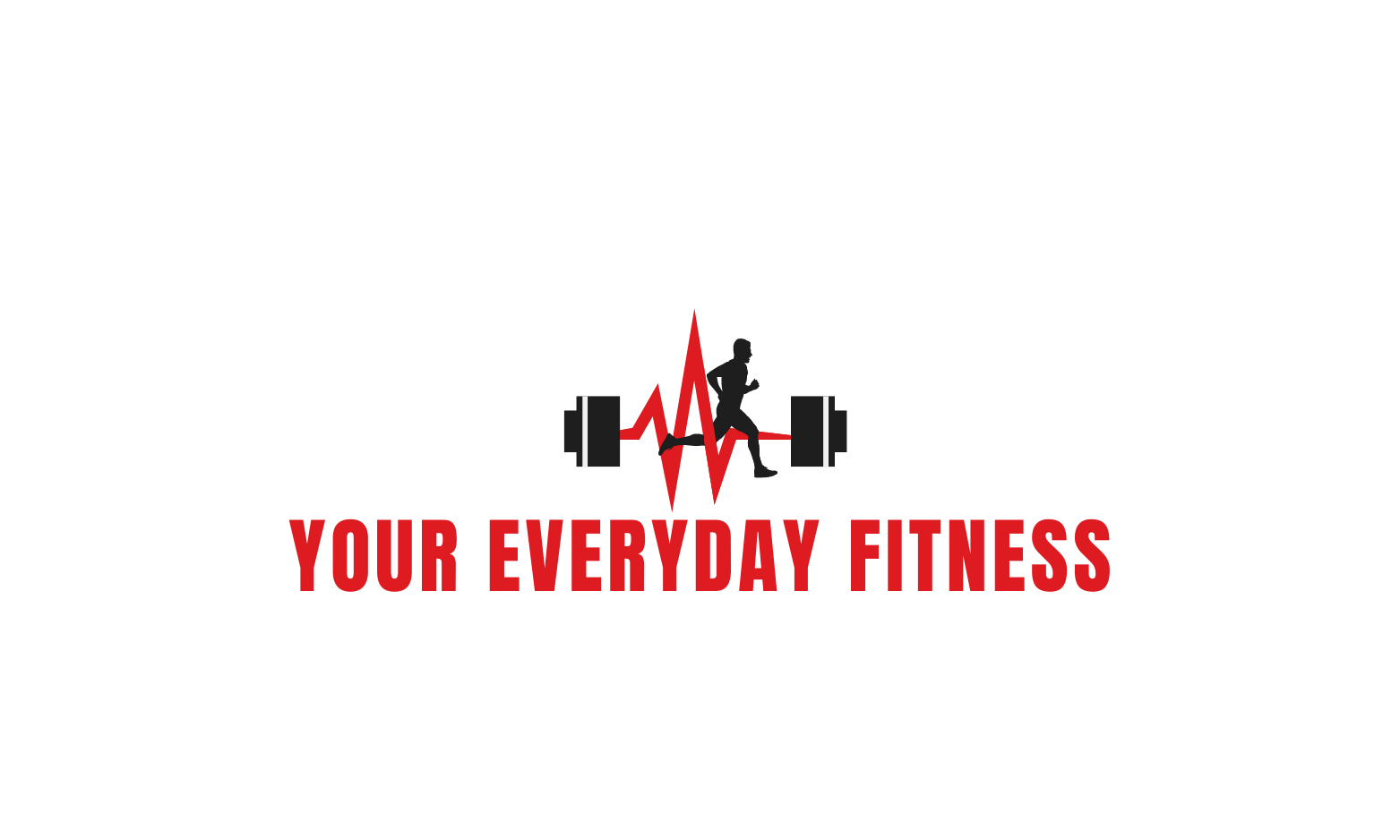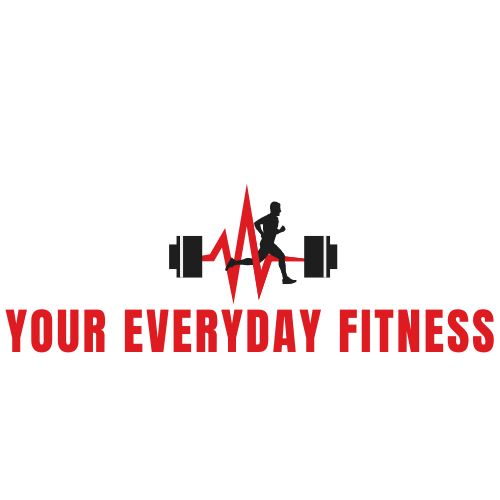If you have been working out hard, but still not feeling like you have been optimizing your nutrition after you workout, we got you covered. Post-workout nutrition is a game changer that can help you climb to new heights in your training journey.
What you eat, when you eat, and how much you eat all significantly impact how your body reacts to a workout.
If you want to learn more about nutrition for your workouts, check out our articles on the connection between nutrition and strength training, the best pre-workout nutrition, low vs high carb diets, and intermittent fasting.
Now, let’s get into why post-workout nutrition is so important for you to understand.
Why Post-Workout Nutrition Matters
Boosting Your Workout Gains
Alright, let’s get real. After sweating it out at the gym or pushing through a tough strength training session, what you eat next can make or break your progress. The right nutrients can help you bounce back quicker, rebuild those glycogen stores, and get those muscles growing again. This means you’re not just ready for your next workout, but you’re also hitting your fitness goals faster.
Although the concept of the “anabolic window” has been questioned, it has been proven that immediate post-workout nutrient consumption, especially of protein, still plays a role in muscle recovery and performance (Aragon & Schoenfeld, 2013).
| Nutrient | Benefit |
|---|---|
| Protein | Muscle repair and growth |
| Carbohydrates | Glycogen replenishment |
| Hydration | Optimal recovery and injury prevention |
Speeding Up Muscle Recovery
If you’re serious about getting stronger and recovering faster, what you eat after your workout is key. The International Society of Sports Nutrition (ISSN) recommends eating about 20 to 40 grams of protein every 3 to 4 hours to help those muscles recover and grow (Healthline). This gives your muscles the building blocks they need to repair and get stronger.
Here’s a quick rundown of the key nutrients and what they do:
| Nutrient | Role in Recovery |
|---|---|
| Protein | Repairs muscle damage and builds muscle |
| Carbohydrates | Replenishes glycogen used during exercise |
| Fluids | Keeps you hydrated and aids in recovery |
For more tips on how to nail your post-workout nutrition, check out articles like nutrient timing for strength gains.
To get the most out of your workouts and speed up recovery, aim for a good mix of protein, carbs, and fluids in your post-workout meals. This not only helps you recover faster but also gets you ready for your next session. Whether it’s a protein shake or a balanced meal, paying attention to what you eat after exercising can make a huge difference.
Protein Intake for Strength Training
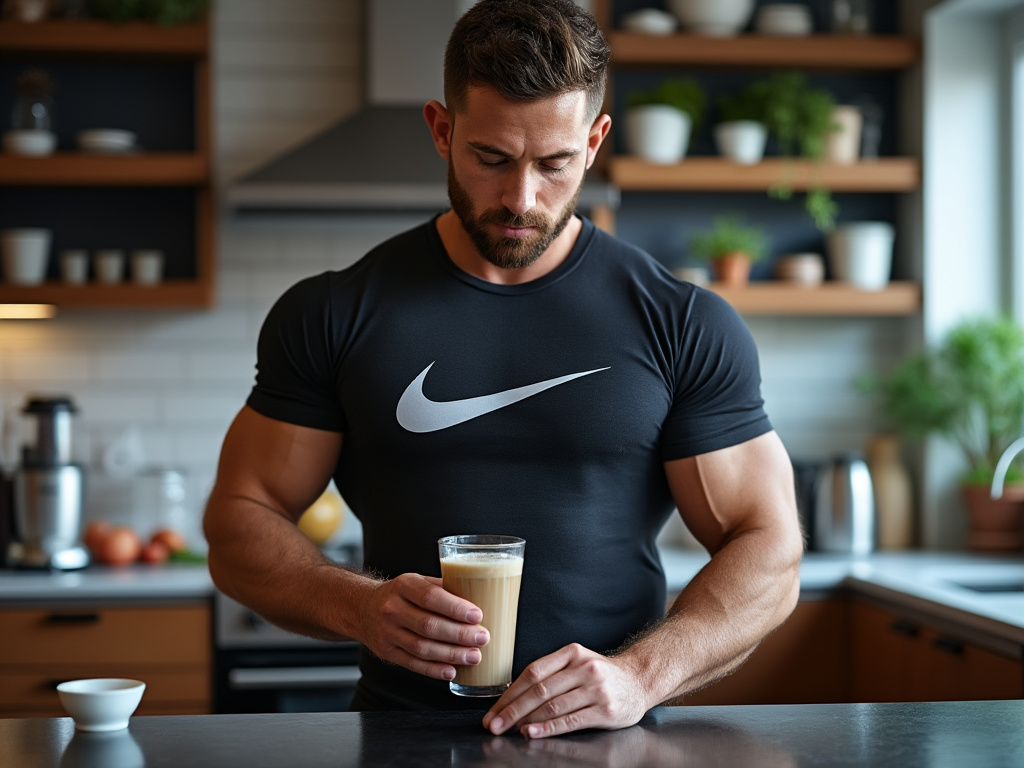
Why Protein Matters for Muscle Recovery
When you hit the gym hard, your muscles take a beating. Protein is your best friend for patching up those tiny tears and making your muscles stronger.
Nutrition Science and Training Expert Alan Aragon has proven that consuming protein both before and after a workout enhances muscle protein synthesis and reduces muscle protein breakdown.
Muscle recovery is all about muscle protein synthesis, which is just a fancy way of saying your body is building new muscle. High-quality proteins like whey can really pump up your gains during resistance training. And if you want to go the extra mile, supplements like BCAAs and HMB can help reduce muscle damage and speed up recovery.
How Much Protein Do You Need?
To get the most out of your workouts, you need to eat enough protein.
According to CEO & Scientific Director at DBSS, Diego Bonilla, Post-exercise consumption of high-quality protein, ~20-40 g per meal, stimulates muscle protein synthesis (MPS) and facilitates tissue repair, contributing to faster recovery and growth.
Aragon says that high-quality protein dosed at 0.15–0.2 g/lb of lean body mass (LBM) before and after exercise maximizes the anabolic response to resistance training.
He also showed in one study that protein synthesis increased by 300% when nutrients were consumed immediately post-exercise compared to just a 12% increase when consumption was delayed by 3 hours.
So it is clear that post-workout protein is necessary. around 20-30 grams seems to be a safe bet for how much to consume right after a workout. A quick scoop of Whey protein will do the trick for ya.
For more tips on bulking up with protein, check out our articles on the optimal protein timing, and protein for muscle growth.
Balancing Your Diet
Don’t just focus on protein. You need a mix of carbs and fats too. Carbs help refuel your energy stores, and fats are essential for overall health.
Remember, the right nutrition can make or break your gains. So, keep your diet balanced, stay consistent, and watch your muscles grow!
Carbs for Strength Training
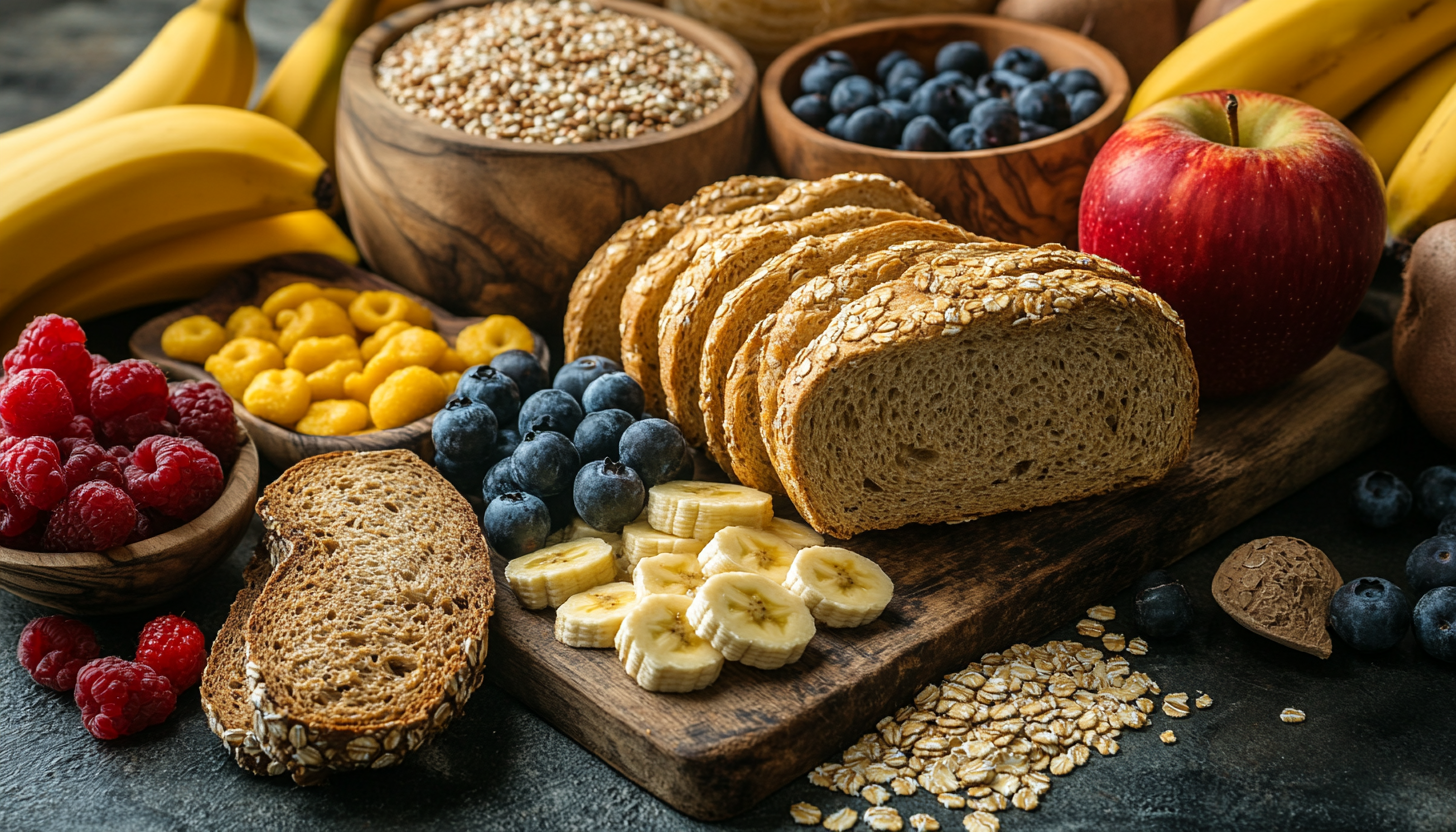
Carbs are your best friend when it comes to bouncing back after a tough workout. They refill the energy tanks (glycogen stores) that your muscles burn through during exercise, helping you recover faster and get ready for your next session.
Refilling the Tank
After you’ve pushed your limits, your body’s glycogen stores are running on empty. Typical resistance training reduces muscle glycogen by about 36-39%. Carbs will help you refuel your glycogen stores. While Aragon states that immediate post-exercise carbohydrate consumption is not critical unless performing multiple sessions per day, it will still give you a boost.
Eating carbs is like topping off your gas tank, giving you the energy you need for your next workout.
Bonilla states that consuming 0.5 g of carbohydrates per pound of body weight per hour for the first 4 hours post-exercise is critical for maximizing glycogen resynthesis, particularly when rapid recovery is needed.
It has also been shown that delaying carbohydrate consumption by 2 hours post-exercise reduces muscle glycogen synthesis by as much as 50%. So get those carbs back asap.
For the best results, aim to eat your carbs within two hours after exercising. This is when your body is primed to refill those glycogen stores quickly, making recovery a breeze (PubMed).
Carbs + Protein = Recovery Power
Pairing carbs with protein after a workout is like a one-two punch for recovery. It not only refills your glycogen stores but also helps repair muscle.
Here are some tasty carb-protein combos to try after your workout:
- Greek yogurt with honey and berries
- Whole grain toast with peanut butter
- Banana and a protein shake
Want to know more about how carbs and protein team up for recovery? Check out our article on carbs and strength performance.
By focusing on getting the right carbs after your workout, you’ll recover faster and perform better in your strength training. For more tips, dive into our article on strength training macronutrients.
Hydration for Optimal Recovery
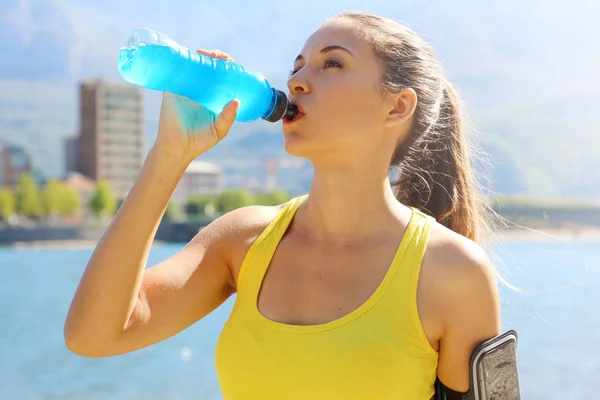
Staying hydrated is crucial after a workout. It helps your body fix and build muscle, keeps you performing at your best, and stops injuries in their tracks.
Why Hydration Matters
Drinking enough water before and after you exercise is a game-changer for recovery and performance. When you sweat, you lose fluids, and it’s super important to replace them. Here’s why:
- Keeps your body cool
- Moves nutrients to your muscles
- Flushes out waste
- Cuts down on muscle cramps and soreness
- Speeds up recovery
Expert researcher Stefania Orrù states that dehydration of as little as 2% can impair performance, so water and electrolytes are essential for keeping athletes in top condition.
The more intense the workout, the more important rehydration is.
How to Stay Hydrated
To bounce back quickly, follow these hydration tips from the National Athletic Trainers’ Association (NATA) and other experts:
| Timing | What to Drink |
|---|---|
| Before Exercise | 500-600 ml of water 2-3 hours before, and 200-300 ml of water 20-30 minutes before. |
| During Exercise | 200-300 ml of water every 10-20 minutes, depending on how hard and long you’re working out. |
| After Exercise | Drink 1.5 times the amount of weight you lost during exercise. So, if you lost 1 kg (2.2 lbs), drink 1.5 liters (50 oz) of water. |
Don’t forget about electrolytes. Orru explains how sports drinks help athletes by restoring lost water and electrolytes like sodium, potassium, and chloride, which are crucial for maintaining hydration and muscle function during exercise. Salty foods can help as well.
Bonilla states that rehydration should be prioritized immediately post-exercise, and consuming sodium-rich fluids (14-20 mg of sodium per ounce) accelerates fluid retention and rehydration, especially when there’s little recovery time between sessions.
For more tips on staying hydrated, especially if you’re into strength training, check out our article on hydration for strength athletes.
By keeping these hydration tips in mind, you’ll help your body recover faster, perform better, and avoid injuries. For more on what to eat after a workout, visit our guide on post-workout recovery nutrition.
Timing of Post-Workout Nutrition

Getting your post-workout nutrition right can make a huge difference in how you recover and build muscle. Knowing when to eat and what to eat can really boost your strength training results.
The Golden Hour
Right after you finish exercising, there’s a special time when your body is like a sponge, ready to soak up nutrients. This is often called the “golden hour.” Eating the right stuff during this time helps repair muscles and refill your energy tank. This is super important if you’re looking to get stronger and perform better.
| Time After Workout | Key Nutrients | Benefits |
|---|---|---|
| 0-30 minutes | Protein, Carbs | Muscle repair, Energy refill |
| 30-60 minutes | Protein, Carbs | Ongoing recovery, Less muscle soreness |
| 1-2 hours | Balanced meal | Steady energy, Overall recovery |
What to Eat and When
Eating the right mix of protein and carbs around your workout can help you recover faster and build muscle better. But how much this matters can depend on your goals and how hard you train.
- Protein: Aim for 20-30 grams of good-quality protein within 30 minutes after your workout.
- Carbs: 0.5 g of carbohydrates per pound of body weight in the immediate meal post-workout.
| Nutrient | Amount | Source |
|---|---|---|
| Protein | 20-30g | Whey protein, Chicken breast, Greek yogurt |
| Carbs | ~60-100g | Banana, Oatmeal, Sweet potatoes |
For more tips on when and what to eat, check out our article on nutrient timing for strength gains.
By getting your post-workout nutrition right, you can recover better and get more out of your strength training.
Example Post-Workout Meals for You
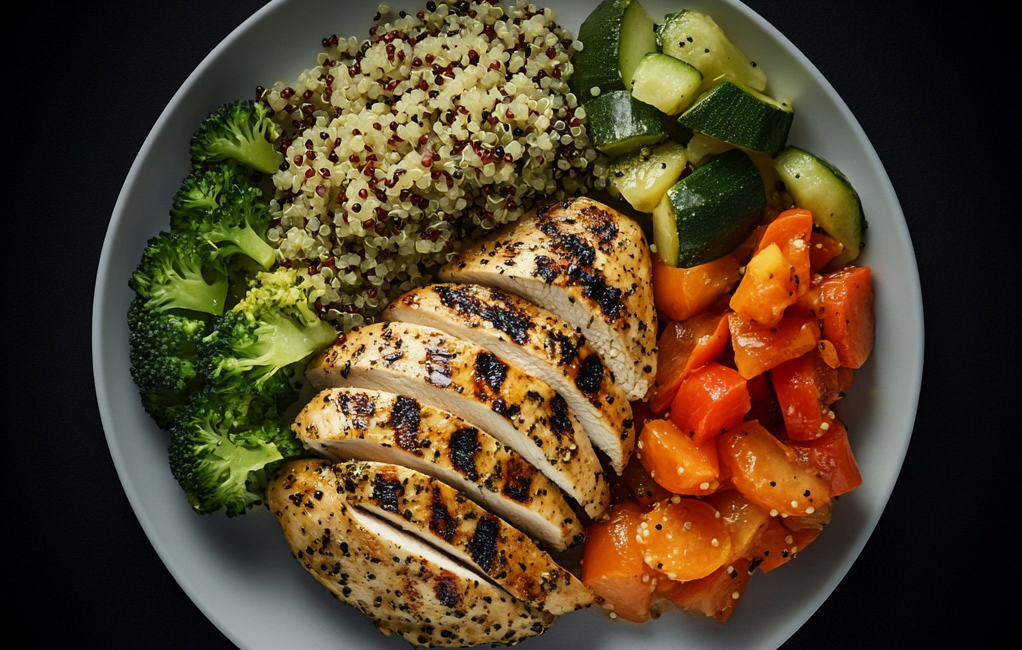
1. Grilled Chicken, Quinoa, and Steamed Vegetables
- Why it works: This meal provides lean protein from chicken to aid in muscle repair, while quinoa offers complex carbs for glycogen replenishment. Vegetables add antioxidants to help reduce oxidative stress.
- Nutrients: High-quality protein, complex carbs, fiber, antioxidants.
2. Salmon, Sweet Potatoes, and Spinach
- Why it works: Salmon provides omega-3 fatty acids to reduce inflammation and promote recovery, while sweet potatoes replenish glycogen stores. Spinach is packed with antioxidants for muscle recovery.
- Nutrients: Protein, omega-3s, complex carbs, antioxidants.
3. Greek Yogurt with Berries and Honey
- Why it works: Greek yogurt is rich in protein to stimulate muscle protein synthesis. Berries offer antioxidants, and honey provides fast-digesting carbs for quick glycogen recovery.
- Nutrients: Protein, simple carbs, antioxidants.
4. Egg Omelet with Avocado and Whole Grain Toast
- Why it works: Eggs provide high-quality protein for muscle repair. Whole grain toast offers complex carbs, and avocado adds healthy fats for sustained energy and recovery.
- Nutrients: Protein, healthy fats, complex carbs.
5. Protein Smoothie with Whey Protein, Banana, and Spinach
- Why it works: Whey protein is quickly absorbed to promote muscle growth. Banana provides quick-digesting carbs, while spinach offers antioxidants and additional nutrients for recovery.
- Nutrients: Protein, fast-digesting carbs, antioxidants.
Additional Tips
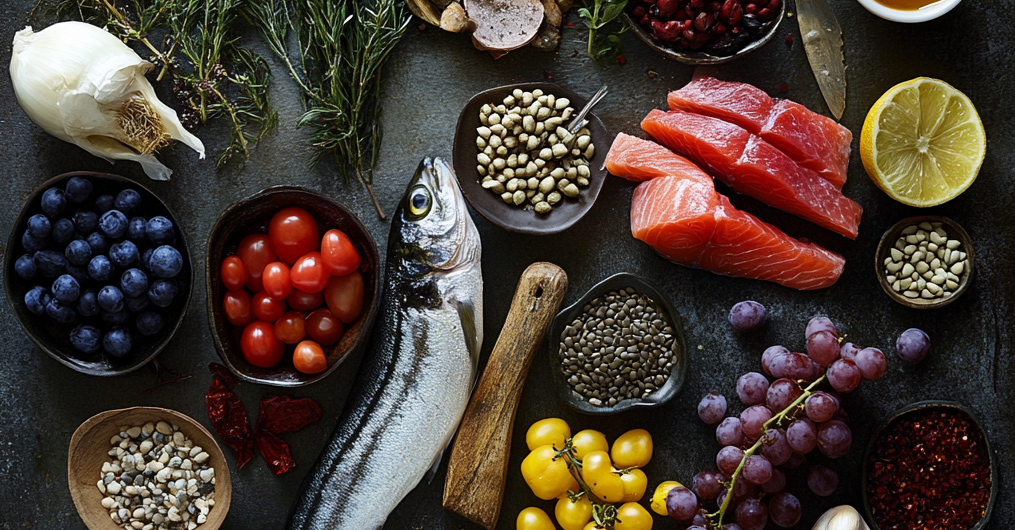
Omega-3s & Antioxidants
Including omega-3 fatty acids and antioxidants in your post-workout nutrition can significantly boost your recovery process.
Omega-3s, found in foods like fish oil, chia seeds, and flaxseeds, are known for their anti-inflammatory properties. After intense exercise, your muscles experience inflammation and damage. Omega-3s help reduce this inflammation, allowing your muscles to heal faster, minimizing soreness, and improving overall recovery.
Antioxidants—like those found in berries, leafy greens, and other colorful fruits and vegetables—also play a crucial role in recovery by combating oxidative stress caused by exercise.
This stress can slow recovery and contribute to muscle soreness. Antioxidants neutralize free radicals and reduce muscle damage, speeding up the recovery process and keeping you feeling your best for the next workout.
Supplements to Speed Up Recovery
Sometimes food alone isn’t enough. Supplements can give you that extra edge. Here are some popular ones:
Creatine Monohydrate: This helps increase muscle mass and strength, and it’s great for tissue repair.
BCAAs: These amino acids can reduce muscle soreness and speed up recovery.
HMB: This can help prevent muscle breakdown and support repair.
Protein Powders: Whey, casein, and plant-based protein powders are easy ways to get your protein fix. Learn more about protein for muscle growth.
| Supplement | Benefit | How Much to Take |
|---|---|---|
| Creatine Monohydrate | Boosts muscle mass and repair | 5g daily |
| BCAAs | Cuts down muscle soreness | 5-10g before or after workout |
| HMB | Prevents muscle breakdown | 3g daily |
| Omega-3 Fatty Acids | Reduces muscle damage | 1-2g daily |
For more on supplements, check out our guide on strength training supplements.
By adding these nutrients and supplements to your post-workout routine, you’ll help your muscles repair and recover faster.
References
- Orrù S, Imperlini E, Nigro E, Alfieri A, Cevenini A, Polito R, Daniele A, Buono P, Mancini A. Role of Functional Beverages on Sport Performance and Recovery. Nutrients. 2018 Oct 10;10(10):1470. doi: 10.3390/nu10101470. PMID: 30308976; PMCID: PMC6213308.
- Aragon AA, Schoenfeld BJ. Nutrient timing revisited: is there a post-exercise anabolic window? J Int Soc Sports Nutr. 2013 Jan 29;10(1):5. doi: 10.1186/1550-2783-10-5. PMID: 23360586; PMCID: PMC3577439.
- Bonilla DA, Pérez-Idárraga A, Odriozola-Martínez A, Kreider RB. The 4R’s Framework of Nutritional Strategies for Post-Exercise Recovery: A Review with Emphasis on New Generation of Carbohydrates. Int J Environ Res Public Health. 2020 Dec 25;18(1):103. doi: 10.3390/ijerph18010103. PMID: 33375691; PMCID: PMC7796021.
- Vliet SV, Beals JW, Martinez IG, Skinner SK, Burd NA. Achieving Optimal Post-Exercise Muscle Protein Remodeling in Physically Active Adults through Whole Food Consumption. Nutrients. 2018 Feb 16;10(2):224. doi: 10.3390/nu10020224. PMID: 29462924; PMCID: PMC5852800.
- O’Connor E, Mündel T, Barnes MJ. Nutritional Compounds to Improve Post-Exercise Recovery. Nutrients. 2022 Nov 29;14(23):5069. doi: 10.3390/nu14235069. PMID: 36501099; PMCID: PMC9736198.
